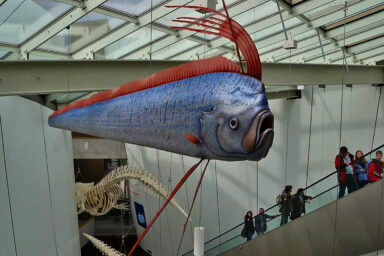NRA Sues Maryland: What Could It Mean for the State’s New Gun Laws?
|
Listen To This Story
|
PICKS are stories from many sources, selected by our editors or recommended by our readers because they are important, surprising, troubling, enlightening, inspiring, or amusing. They appear on our site and in our daily newsletter. Please send suggested articles, videos, podcasts, etc. to picks@whowhatwhy.org.
NRA Sues Maryland: What Could It Mean for the State’s New Gun Laws? (Maria)
The author writes, “Maryland Gov. Wes Moore signed gun-control measures into law on Tuesday, and the National Rifle Association quickly filed a federal lawsuit against the state. The NRA claims the ‘unconstitutional bill was signed making carry illegal in so much of the state that a law-abiding individual cannot effectively carry for self-defense.’ Adam Ruther, a legal expert, said that this lawsuit is about whether or not Maryland’s new gun laws cross the line and place unconstitutional restrictions on a constitutionally protected right.”
Boycott Disqualifies 3 in Oregon Senate From Being Reelected (Reader Steve)
From The Seattle Times: “Two Republicans and an independent taking part in a boycott that has stalled hundreds of bills in the Oregon Senate, including measures on abortion and gender-affirming care, were disqualified Monday from reelection under a new constitutional amendment aimed at stopping such walkouts. The GOP-led walkout of the Democrat-dominated Senate has stretched to 10 days, though some participating lawmakers have rotated in and out since the boycott began May 3. Each of the three affected senators accumulated 10 unexcused absences, making them ineligible to serve in the Legislature for the period after their terms expire under a ballot measure voters passed overwhelmingly last year.”
Montana to Become First US State to Ban TikTok (Sean)
The author writes, “Montana Governor Greg Gianforte on Wednesday signed legislation to ban Chinese-owned TikTok from operating in the state to protect residents from alleged intelligence gathering by China, making it the first U.S. state to ban the popular short video app.”
Why America Is Struggling to Stop the Fentanyl Epidemic (Roshni)
From Foreign Affairs: “Most of the world’s fentanyl and its precursor chemicals come from China or Mexico, countries whose current policies and priorities make effective control of fentanyl production very difficult. U.S. law enforcement cooperation with China, which was limited to begin with, has in recent years collapsed altogether. Absent a reset in U.S.-Chinese relations, that is unlikely to change. The Mexican government, too, has eviscerated law enforcement cooperation with the United States. Although a series of high-level bilateral meetings in April may have opened a path to increased cooperation down the line, it is far from clear if they will lead to substantive action from Mexican authorities.”
The Diary of a Rikers Island Library Worker (Michaela)
The author writes, “For more than a year, I’ve been working in New York City jails as a library assistant for the Brooklyn Public Library. I started out at the jail complex on Rikers Island. Now I work at the Vernon C. Bain Center.”
Cudahy Schools’ Shift to a New Reading Curriculum Looks Like It’s Paying Off (Al)
From the Milwaukee Journal Sentinel: “A shift toward using ‘science of reading’ curriculums that emphasize phonics in teaching students to read is occurring in Wisconsin and across the nation. This is the first of three columns describing what this means to students, educators and parents in Cudahy Public Schools, which has embraced this approach.”
How Wildfire Smoke From Australia Affected Climate Events Around the World (Mili)
The author writes, “New research implicates emissions from the 2019-2020 Australian fires in the emergence of a three-year super La Niña that fueled droughts in Africa and hurricanes in the Atlantic.”
Wanted: Lost Crab Traps. Reward: $5 (Laura)
From Hakai Magazine: “Crab traps work a bit like Roach Motels: crabs crawl in, but they don’t crawl out. That’s good news for crab fishers’ chances of pulling in a good catch, but when traps get lost at sea, they become a menace to all sorts of animals. … But a group in Mississippi has found a solution: paying shrimpers a US $5 bounty to collect and recycle derelict crab traps.”




